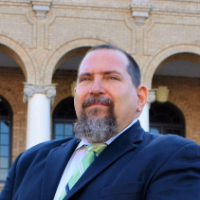 Suwannee DUI-DWI Lawyers, Florida
Suwannee DUI-DWI Lawyers, Florida
Sponsored Law Firm
-
 x
x

Click For More Info:
-
Keches Law Group
122 Dean Street Taunton, MA 02780» view mapSocial Security, Personal Injury, Workers Comp. Protecting Your Rights
Our team of experienced personal injury attorneys has over 130 years of combined experience representing individuals and families injured due to the negligence of others.
800-713-8650
Not enough matches for Suwannee DUI-DWI lawyer.
Below are all Suwannee Criminal lawyers.
Sponsored Lawyers
1-10 of 16 matches
Criminal, DUI-DWI, Elder Law
This trial focused practice has the goals of delivering quality legal services, providing to clients personal services while developing strong, trusted relationships through effective communication, analysis, planning and litigation skills seeking the best result possible. Mr. Straile has been a lawyer as a member of the Florida Bar since 2003 and has been working within the court and justice system since 2001; he is a member of the Criminal Law, Family Law, Real Property, Probate & Trust and the Trial Lawyers sections of the Florida Bar. Mr. Straile is a past treasurer for the Eighth Judicial Circuit Young Lawyers Division. Mr. Straile focuses his practice on trial law focusing in family, including domestic violence, traffic, criminal, business law and limited civil litigation or civil trial matters. Family cases include divorce, custody, paternity, modification, domestic violence, child abduction, division of assets, parenting plans, and marital settlement agreements. Mr. Straile handles cases from civil traffic to trafficking narcotics and cases ranging from misdemeanors to life felonies. Mr. Straile has handled all levels of criminal offenses and all issues related to criminal offenses from investigation to verdict and appeal. Mr. Straile represents businesses from start up to litigation after sale. Many clients also have used Mr. Straile to provide general consulting. Mr. Straile earned an LL.M (advanced law degree) from the University of Florida in tax law, a J.D. from St. Thomas University and a B.S. from Lambuth University . Prior to entering the legal field Mr. Straile provided financial services and advice at Banker's Life & Casualty and Morgan Stanley. Mr. Straile spent two years between the Third District Court of Appeal in Miami and the Seventeenth Judicial Circuit State Attorney's Office in Ft. Lauderdale . While in Law school Mr. Straile was active in trial competitions, and coached the St. Thomas Trial Team. Volunteer work includes the Volunteer Income Tax Assistance program and the Boy Scouts of America. Mr. Straile served as an organizer of the Volunteer Income Tax Assistance program and a liaison between the program and the Internal Revenue Service. For the Boy Scouts Mr. Straile taught merit badges, served as quartermaster, and assistant scout master. Mr. Straile is an Eagle Scout.
(more)



 Sean Flaherty Taunton, MA
Sean Flaherty Taunton, MA AboutKeches Law Group
AboutKeches Law Group Practice AreasExpertise
Practice AreasExpertise

